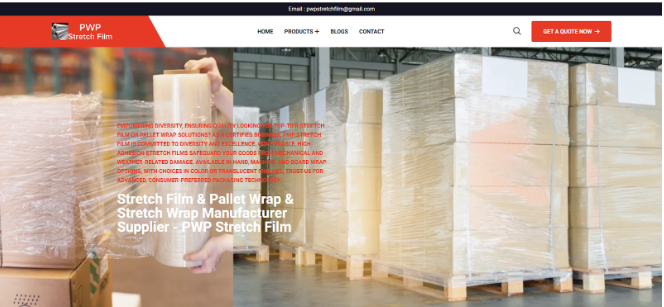VCI (Vapor Corrosion Inhibitor) Stretch Film is a specialized packaging material designed to protect metal products from corrosion during storage, shipping, and handling. Unlike traditional stretch film, which is primarily used to secure and stabilize items on pallets, VCI Stretch Film is infused with corrosion-inhibiting chemicals that actively prevent rust and other forms of corrosion that can damage metal surfaces. This film offers a protective barrier that not only secures products but also provides a layer of protection against environmental factors that commonly lead to corrosion, such as moisture, humidity, and exposure to air.
How Does VCI Stretch Film Work?
VCI Stretch Film works through the release of volatile corrosion inhibitors (VCIs) that create a protective vapor barrier around metal surfaces. These inhibitors are embedded within the film and gradually evaporate, forming a thin layer of protection on the metal products. This vaporized layer bonds to the metal surface, creating a protective shield that guards against rust and oxidation without the need for additional coatings, oils, or other chemicals.
The film is designed to be used in various packaging applications, particularly for metal parts and products that are susceptible to corrosion. Whether used in the automotive, electronics, aerospace, or manufacturing industries, VCI Stretch Film is an effective solution for ensuring that metal components remain rust-free during transport and storage. Both Machine Stretch Film and Hand Stretch Film can be used depending on the volume and specific application requirements.
Benefits of VCI Stretch Film
- Corrosion Protection
The primary benefit of VCI Stretch Film is its ability to prevent corrosion. It acts as a corrosion inhibitor by forming a protective layer on metal products, thus protecting them from rust and oxidation caused by moisture, air, and other environmental factors. - Convenience and Ease of Use
Like traditional stretch film, VCI Stretch Film is easy to apply using automatic or manual wrapping machines. This makes it an ideal choice for manufacturers and distributors who need to quickly and efficiently wrap products for shipment or long-term storage. - Cost-Effective Alternative
VCI Stretch Film is a cost-effective solution compared to traditional methods of corrosion protection, such as applying coatings, rust inhibitors, or oils. It eliminates the need for additional protective materials, reducing both costs and time. The cost-effectiveness is enhanced by the use of Machine Stretch Film, which allows for higher efficiency and less material waste when wrapping large quantities of goods, while Hand Stretch Film offers a more affordable option for smaller, less frequent wrapping jobs. - Long-Term Protection
The corrosion inhibitors in VCI Stretch Film offer long-lasting protection, ensuring that metal products remain in pristine condition for extended periods, even during prolonged storage or long-distance shipping. - Environmentally Friendly
VCI Stretch Film is often made with environmentally friendly materials that are recyclable. The film is typically free of harmful chemicals and oils, making it a more sustainable option compared to other traditional corrosion protection methods. - Versatile Applications
VCI Stretch Film is suitable for a wide range of metal products, from small components to large machinery. Its versatility makes it a popular choice for various industries, including automotive, electronics, military, and industrial manufacturing. - No Residue or Stains
Unlike some corrosion protection methods that can leave behind sticky residues or stains, VCI Stretch Film does not leave any residue on metal surfaces. This ensures that products are not only protected but also clean and ready for use upon unpacking.
Common Uses of VCI Stretch Film
- Metal Parts Shipping: Used extensively in shipping automotive parts, machinery components, and other metal goods to protect them from corrosion during transit.
- Long-Term Metal Storage: Ideal for wrapping metal products that will be stored for extended periods, ensuring they remain free from rust and corrosion while in storage.
- Industrial Manufacturing: Used in manufacturing environments where metal components need to be wrapped before assembly or shipment, protecting them from exposure to moisture and other harmful elements.
- Exporting Metal Goods: Particularly valuable in international shipping, where products may be exposed to varying weather conditions and extended transit times.


